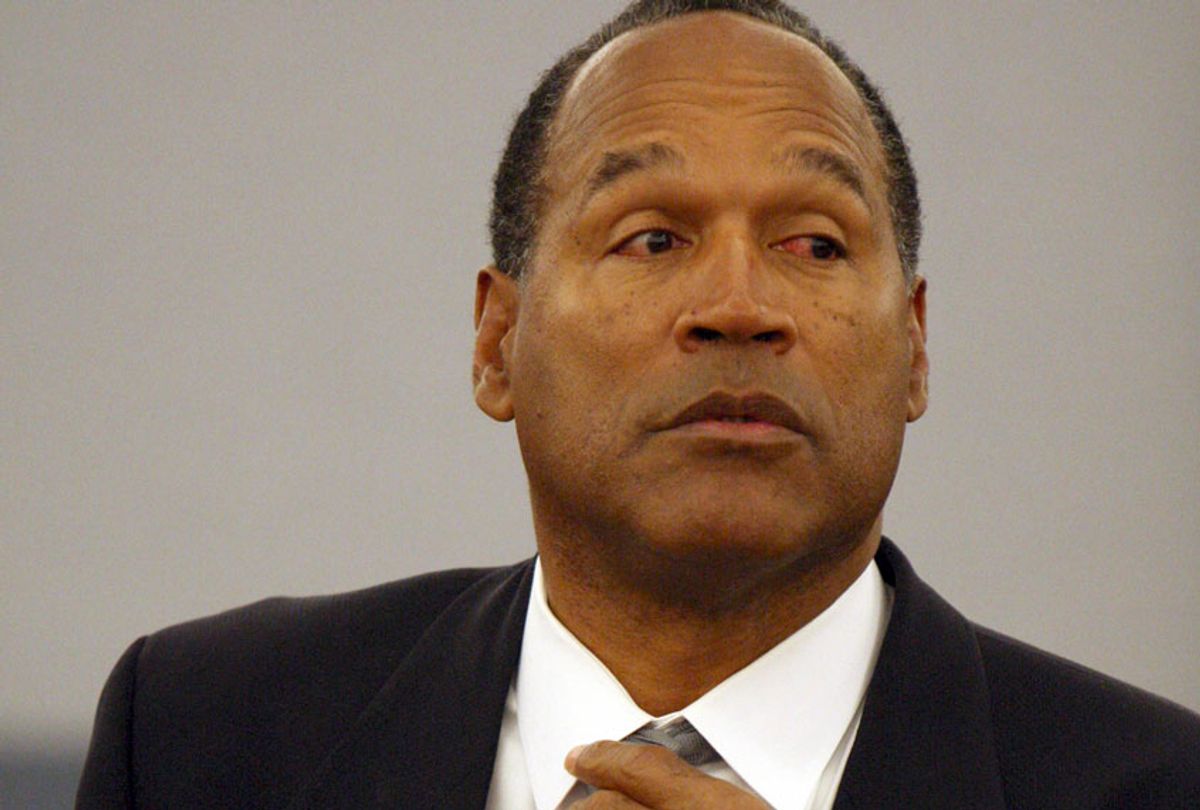“The Juice is loose! The Juice is loose!” Alvin Williams shouted, running up and down my middle school's hallway after the 1995 verdict came in declaring O.J. Simpson not guilty in the murders of Nicole Brown Simpson, his ex-wife, and Ron Goldman.
Other kids from our science class ran out of the room to join in Alvin's celebration. I didn’t jump up and down for joy, but I did experience a sense of pride in Simpson's verdict; it felt to me like a successful black man had beaten the racist criminal justice system for the first time in history — or at least during my short time on earth. As a young teen, I was already used to seeing guys who looked like me be railroaded by the system. O.J. beating it was a win.
We had no real connection to O.J., other than the trial's around the clock coverage. Everybody was aware of what was going down with the O.J. trial even if they weren’t trying to be. And everybody assumed he would lose. It’s odd to look back now and see how winning a high-profile case instantly propelled O.J. to the top of blackness as the Afrocentric Leader of the American Negro Tribe — in the days before the internet at least. Remember, this is the same guy who was said to have said, “I’m not black, I’m O.J.!” How did he get so much black support? Facebook and Twitter didn't exist in 1995, or things might have gone in a completely different way.
Two years after he was acquitted, Simpson lost a wrongful death civil suit filed against him by the families of the victims. Since then, he’s been on a constant campaign to ruin what was left of his name. The $33.5 million in damages he was ordered to pay the families of the slain doubled over the course of two decades of nonpayment. In 2007, he published a memoir titled "If I Did It." In 2008 he was convicted of multiple charges stemming from an armed robbery and was sentenced to 33 years in prison. He served nine years and was released in 2017. His actions over the years have made him a permanent excrement stain on black culture as well as American culture at large.
Then — perhaps inevitably — O.J. joined Twitter.
Simpson has been active on the social media platform for a little over a week now, and his posts get more pathetic by the day.
O.J. promises commentary on politics, controversies — like the weird rumor that he's Khloe Kardashian's father — and his innocence. And yet America hasn't indicated any interest in having these conversations with O.J. We don’t want to hear about or from him in any way. We have moved on.
"This should be a lot of fun, I got a little getting even to do!" is how the 71-year-old Simpson ended his first tweet. Getting even with who? Whatever he means, I think we all can agree that we don't want that.
Simpson has tweeted less than 10 times over the last week, and his posts currently consist of a series of awkward videos in which he directly addresses the camera, promising insight on sports — did anyone ask? — and holding people accountable for trying to discredit him, though he obviously didn't need any help with that.
I wish I could say that nobody cares what Simpson has to say about anything. But he did quickly rack up almost 800,000 followers in just over a week. Are people following him as real fans, or out of morbid curiosity, or just to make fun of the once-legendary athlete turned walking joke? Hard to say. Now that O.J. has a lot of eyes on him — that is, enough followers to monetize — what is he planning to do with them? Can O.J. sell products? That remains to be seen.



Shares